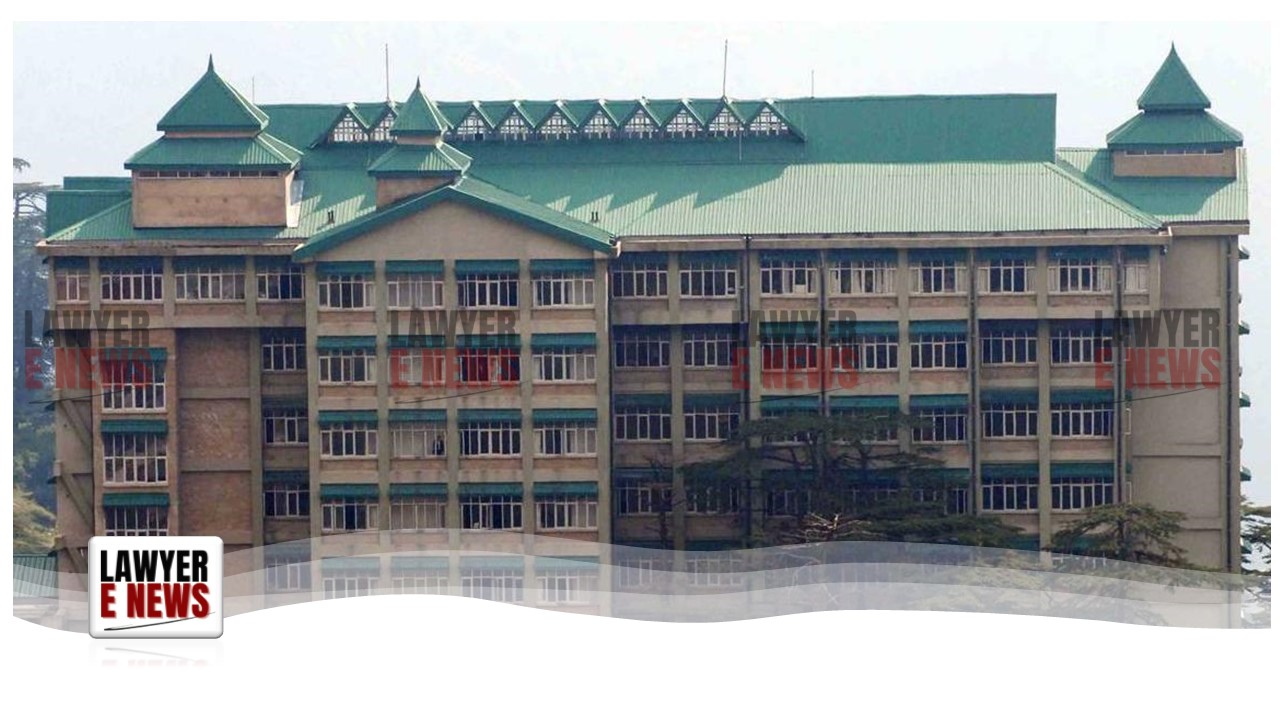-
by Admin
15 February 2026 5:35 AM



High Court upholds Family Court’s decision, emphasizing the importance of substantial evidence in claims of cruelty and desertion.
The Himachal Pradesh High Court has dismissed an appeal filed by Sunil Kumar seeking the dissolution of his marriage on the grounds of cruelty and desertion. The court upheld the judgment of the Family Court, which had dismissed Kumar’s petition, emphasizing that the respondent’s medical condition and behavior did not meet the legal criteria for divorce.
Sunil Kumar married Anjana Devi on November 28, 2004. Kumar filed a petition for annulment and dissolution of the marriage under Sections 12 and 13 of the Hindu Marriage Act, 1955, but it was dismissed by the District Judge, Hamirpur, on May 10, 2010. He withdrew his subsequent appeal in 2017, reserving the right to pursue other legal remedies. On February 15, 2018, Kumar filed another petition seeking divorce on grounds of cruelty and desertion, which was dismissed by the Family Court on December 30, 2023.
The High Court highlighted the lack of medical evidence to support Kumar’s claim that Devi’s epilepsy constituted grounds for divorce. The court noted, “Epilepsy is not an incurable disease or a mental disorder that warrants the dissolution of marriage under Section 13(1)(iii) of the Hindu Marriage Act, 1955.”
Kumar alleged that Devi had a habit of smoking, drinking, and consuming drugs, and that she left the matrimonial home in 2006. However, the Family Court found no evidence to support these claims. The High Court concurred, stating, “There is no evidence to suggest that the respondent engaged in smoking, drinking, or drug use.”
The Family Court had observed that Kumar admitted to not seeing his daughter since her birth and failing to provide medical evidence of Devi’s epilepsy. The High Court reinforced this finding, emphasizing the appellant’s failure to substantiate his claims with credible evidence.
The High Court reiterated the principles laid out in Harish @ Roshan Karnewar vs. Leelavati @ Reena Karnewar, stating that epilepsy is not a basis for divorce. The judgment also noted that Devi had not deserted Kumar and that she was willing to reconcile and live with him. The court observed, “The plea of irretrievable breakdown of marriage cannot be a ground for dissolution of marriage.”
Chief Justice M.S. Ramachandra Rao remarked, “The condition of ‘epilepsy’ does not constitute an incurable disease or mental disorder as grounds for divorce. The appellant’s claims of cruelty and desertion lack credible evidence and appear to be an attempt to advantage his own wrong.”
The High Court’s decision to dismiss the appeal reinforces the judiciary’s stance on maintaining stringent standards for granting divorce. By affirming the Family Court’s findings, the judgment underscores the necessity of substantial evidence in cases of alleged cruelty and desertion. This ruling is expected to have significant implications for future matrimonial disputes, particularly those involving medical conditions and unproven allegations of misconduct.
Date of Decision: July 16, 2024
Sunil Kumar vs. Anjana Devi
